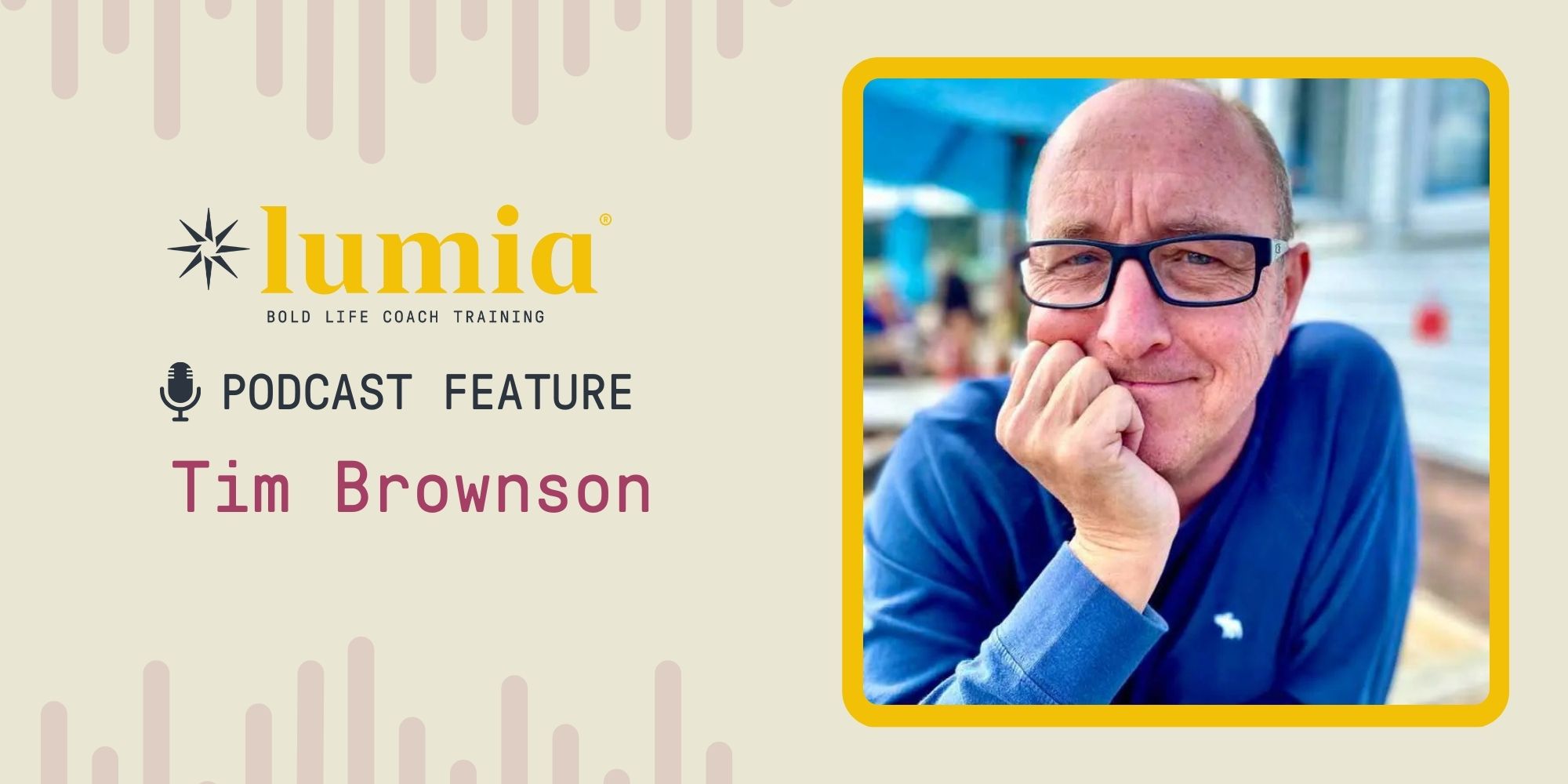Neurobiology of Love: Exploring the Science of Desire
Why do relationships consume us? Pull back the curtain to explore the chemical reactions that underlie love, romance, and heartbreak.
The Everything Life Coaching Podcast, featuring Lumia Coaching founders John Kim and Noelle Cordeaux, is a deep dive into the experience and business of being a life coach. Subscribe to get new episodes weekly! For more in this series, check out: Love and Sh*t (Part 1) and Part 2.
The Neurobiology of Love
How do you define love? Is it a feeling.. an experience.. a choice.. a chemical process… or some combination of all these things?
As we probe its contours in this episode, much of the information we’re presenting draws from the work of biological anthropologist Helen Fisher. Her research sought to understand human drives and emotions around romantic love.
"Romantic love is an addiction: a perfectly wonderful addiction when it’s going well, and a perfectly horrible addiction when it’s going poorly." - Helen Fisher
When we’re in the throes of early love, it’s disorienting by design. We’re actually wired for certain things to happen to ensure that the human species will continue. We get a heavy hit of the brain chemicals necessary for our biological drive to kick in. And we’re not the only animals that experience this kind of stuff!
From a neurobiological perspective, here’s what happens to human beings when we fall in love:
- Focused attention - the feeling that you just can't be without each other.
- Magnification - where it seems like the other person is larger than life.
- Intrusive thinking - the way you can’t get somebody out of your head.
- Emotional exhilaration - intense energy. It’s hard to sleep; there’s a torrent of emotion; maybe you’re shy, trembling, sweating.
- Mood swings - yearning for connection, looking for clues... like replaying songs over and over in search of lyrics that remind you of your person.
- Changing your priorities - keeping your schedule open just in case you hear from them.
- Feeling their feelings - you’re happy when they’re happy, you’re sad when they’re sad.
When we’re feeling madly-in-love, what we’re actually experiencing is a roll of dopamine - which generally lasts between 12-18 months. As you’re experiencing these dopamine rolls, it feels great. You might be inclined to think “this is obviously magic”. When dopamine goes up, your serotonin and cortisol goes down. All of a sudden, you may begin exposing yourself to more risk-taking behaviors.
That “magic” we’re experiencing is, among other things, our instinctive drive to reproduce.
Everything that happens to us, from a neurobiological perspective, is designed so that we can raise healthy offspring. It takes about four years for a tiny human to become relatively self-sufficient. Not surprisingly, four years is also the traditional length of human pair bonding.
From an anthropological perspective, the more deeply intense and verbal a relationship is between two people, the more you physically “light up” the part of your brain that also contributes to pair bonding. So if you have a really deep, close emotional relationship, you’re more likely to extend your connection beyond the first four years.
Unsurprisingly, the most common time for divorce is at the 4 year mark. That’s a trend that holds worldwide. As you might imagine, there’s a chemical response for "falling out of love" too.
When a relationship ends or you experience unrequited love, it induces a mild clinical depression. Those feelings are also real, and might last anywhere from 24 months to four years. The good news is that our bodies and brains do naturally heal, and your chemicals will restabilize.
Knowing all this, how do we navigate the journey of romantic love in a less confusing way?
It starts by simply bringing a semblance of awareness to what's going on!
Notice how we’re conditioned to understand love and relationships by society, media, family or community influences. Your own definitions are likely to change, particularly as you grow older or the vision for your life shifts and evolves.
Be a student of love, and get curious. The most useful tool for navigating love is self awareness. Look back on your life and your relationships to understand the way you love. Define what works and is healthy for you. It’s okay to not know about love, to not have answers. And it’s most definitely okay if it’s not a linear progression!
Ready to Become A Coach?
One of our values at Lumia is that we dare to be different. Our life coaches ignore the expectations society tries to impose on them, and seek to live from their own truth instead. If you are ready to step into your power and you’d like a partner in the process, come check out Lumia Life Coach Training. Grounded in science, our ICF accredited program features authentic instructors, a robust curriculum, and business instruction to prepare you for liftoff.





.png)